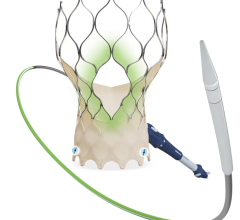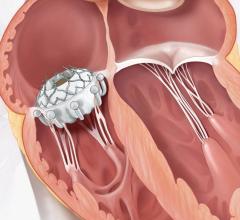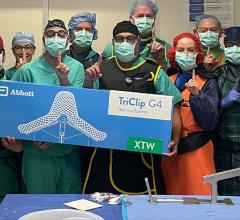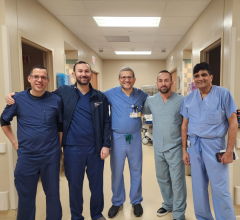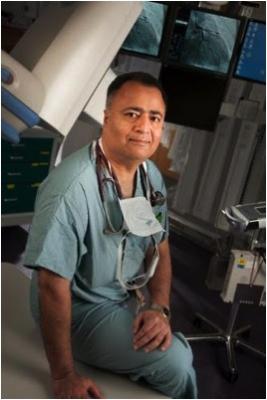
July 30, 2014 — Following a heart attack, many heart failure patients suffer from enlargement of their left ventricle, diminishing the amount of blood the heart can pump to the body and resulting in life-threatening left-sided heart failure symptoms such as shortness of breath, decreased urine production, fatigue and irregular or rapid heartbeat. Treatment options for patients whose left ventricle has enlarged have been limited, until now. Through a percutaneous (needle-puncture of the skin) procedure now available through a clinical trial at PinnacleHealth CardioVascular Institute the first minimally invasive catheter-based device aims to restore normal geometry and function in the damaged muscle (left ventricle). The device is called Parachute and is created by CardioKinetix in California.
The PARACHUTE IV clinical trial will enroll 560 patients with left ventricular (LV) systolic dysfunction in 80 hospitals across the country. The procedure, which takes approximately 75 minutes, is performed in a catheterization laboratory setting and patients are under conscious sedation (rather than general anesthesia). The Parachute implant partitions the damaged muscle, isolating the non-functional muscle segment from the functional segment.
Brijeshwar Maini, M.D., FACC, director, Structural Heart and Advanced Cardiovascular Interventions at the PinnacleHealth CardioVascular Institute, serves as principal investigator for the PARACHUTE IV trial. "This unique device allows us to provide new options for our heart failure patients," said Maini. "We are fortunate to have access to this leading edge technology right here in Harrisburg."
For more information: www.pinnaclehealth.org


 July 08, 2024
July 08, 2024 

